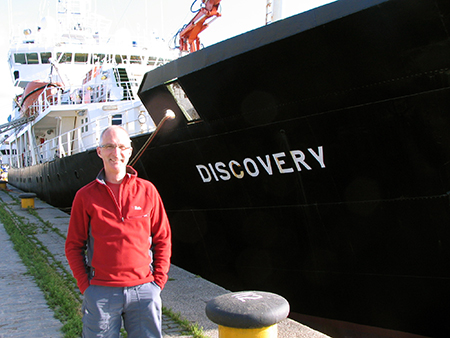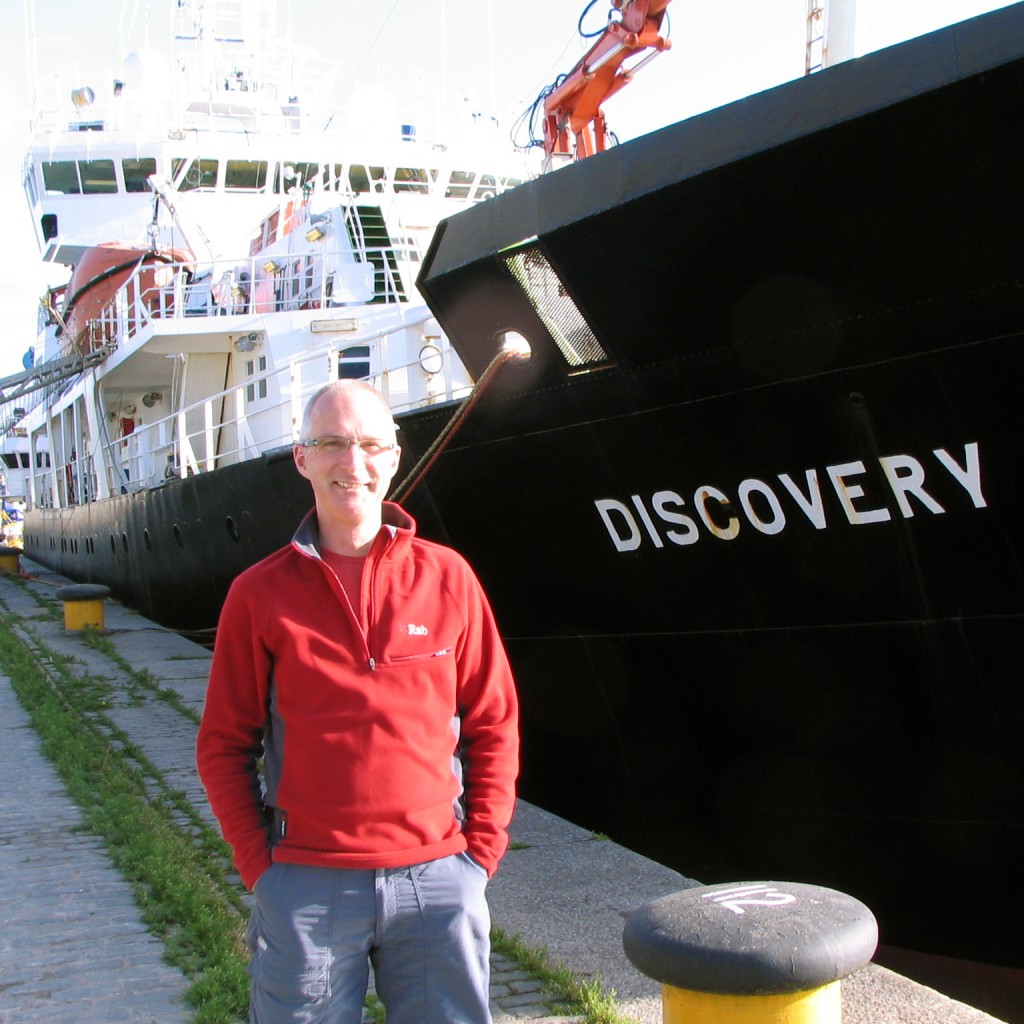Professor Jonathan Sharples and his team will lead a cross-UK group of universities and research centres
Scientists at the University of Liverpool are embarking on a series of research cruises to understand the impact of climate warming on the ecosystems of the seas surrounding North West Europe.
The £3.2million study focuses on the role that shelf-seas – the seas surrounding continental land masses – play in the cycling of carbon and nutrients, and how warming of the seas might affect it.
Shelf seas
The study will be carried out on RRS Discovery, the Natural and Environmental Research Council’s (NERC) new research vessel as well as other research and commercial vessels over a one-year period.
The shelf seas around the UK, which include the North Sea, English Channel, Celtic Sea, Irish Sea and seas around Scotland, have a variety of uses including oil and gas extraction, shipping, telecom and power cables, leisure and recreation, defence, fisheries, aquaculture, raw materials and renewable energy.
Liverpool’s scientists are leading a cross-UK group of universities and research centres. The team will collect data from across the seas surrounding North West Europe to further understanding of the link between the physical and biogeochemical processes which take place in shelf seas and changes to the global carbon and nutrients cycle.
They will measure levels of carbons and nutrients across the NW European shelf seas as well as the transportation of greenhouse gases between the shelf sea and the atmosphere, and the amount of carbon that is transported to the adjacent deep ocean.
Despite accounting for only 5% of the global ocean area, shelf seas are thought to be responsible for about 30% of the annual absorption of atmospheric CO2by the ocean, therefore playing a critical role in the ocean’s ecosystems and the regulation of our climate. Their economic importance is significant, providing 90% of global fish catches and about 15% of the ocean’s plant growth.
Better modelling systems
Professor Jonathan Sharples, from the School of Environmental Sciences, said: “In a gradually warming climate, the capacity of shelf seas to support biological growth and to store carbon is expected to change.
“If we understand today’s carbon and nutrient cycles then we can develop better modelling systems which will contribute to our understanding of the effects of climate warming on the oceans and the role shelf seas could play in altering greenhouse gases in the atmosphere.”
Partners in the project, funded by NERC, include University of Southampton; University of East Anglia, Bangor University; University of Aberdeen; National Oceanography Research Centre; Plymouth Marine Laboratory; Scottish Association for Marine Science; and the Centre for Environment, Fisheries and Aquaculture Science (CEFAS).

